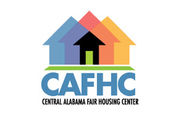Lending Discrimination makes it illegal for brokers, creditors, and agents to discriminate against individuals based on several factors. Know your rights.
Your rights and protections covered by the Fair Housing Act extend beyond just your right to equal housing opportunity, availability, and eligibility. The Fair Housing Act also makes it illegal for mortgage lenders, loan officers, financial partners, etc. to discriminate against someone based on religion, status, national origin, race, color, creed, disability, or sex (including gender, gender identity, sexual orientation, and sexual harassment) at any stage of the mortgage/financial process related to housing. Protections related to housing and financials include your right to fair and equal:
- Approvals and denials
- Financial advertising
- Mortgage broker services
- Property terms (such as interest rates, fees, security deposits, and other costs)
- Property appraisals
- Homeowners insurance
- HOA fees
- Servicing
- Home loan modifications
Federal law prohibits residential or real estate loan discrimination that relates to the purchasing, constructing, improving, repairing, or maintenance of a dwelling. This includes (but might not be limited to) mortgages, refinancing, home equity loans, and home improvement loans.
When Does Lending Discrimination Happen?
Illegal lending discrimination takes place when a lender or any other financial representative or authority member makes decisions during any type of financial process (application, transaction, processing, etc.) based on a person’s race, color, creed, sex, religion, familial status, nationality, age, receipt of public assistance, or disability.
Though fair lending laws are designed to protect borrowers from mortgage discrimination, it still very much proves itself to be a barrier to rental security or homeownership, especially for many marginalized groups. It’s important for you to understand your federal protections and mortgage approval guidelines so that you’re best able to protect yourself from the potential of unfair lending practices.
Examples of Lending Discrimination
Mortgage and lending discrimination come in many shapes and forms. Some specific examples of lending discrimination include, but are not limited, to the following examples:
- A bank officer providing a different level of assistance or customer service to a housing applicant based on their skin color
- Refusing to consider a mortgage applicant’s disability-related income, such as SSI or SSDI
- Charging higher rent or demanding a higher rental security deposit for a tenant based on their gender or gender identity
- Denying a person a mortgage because the property is in a minority community
It can be difficult to discern whether a creditor is rejecting your mortgage, loan, or otherwise financial application based on illegal discrimination – or if it’s due to some weaknesses in your loan application. The water gets murky, especially because lenders have every right to ask you for (and evaluate) personal information, such as your income, credit history, and expenses. Additionally, they might ask you to volunteer certain information that might seem discriminatory (such as your race, ethnicity, age, sex, and marital status).
Though this additional information is usually included because it helps the government keep statistics that fight discrimination, understand that you are not required to supply the information if you don’t feel comfortable doing so.
Legal Protections Reinforcing Fair Lending
Beyond the Fair Housing Act, which is enforced by the U.S. Department of Housing and Urban Development, it’s also important to know that the federal Equal Credit Opportunity Act protects individuals from lending discrimination.
The ECOA applies to any organization or group of individuals who regularly extend credit. That includes banks, small loan, and finance companies, mortgage companies, retail and department stores, credit card companies, and credit unions. The law makes it illegal for creditors to discriminate based on the same basses covered by the Fair Housing Act.
Everyone who participates in the decision to grant credit, or in setting the terms of that credit, must comply with ECOA’s prohibition against discrimination.
HUD’s Fair Housing Act protects individuals from discrimination when they’re engaging in housing-related activities, including those beyond financial activities. You can learn more about the Fair Housing Act and its protections by visiting the Central Alabama Fair Housing Center’s website.
What to Do if You’re Experiencing Mortgage Discrimination
If you are being discriminated against related to any activity that connects to mortgage lending or housing financials, you are able to file a complaint directly with the U.S. Department of Housing and Urban Development. You might also visit the CAFHC website to view our legal assistance services. We also provide countless Fair Housing Resources, including printable materials and local Fair Housing assistance.

